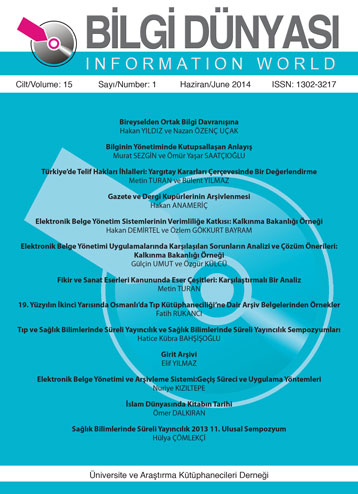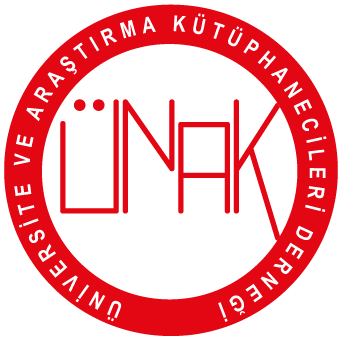Contributions of Electronic Records Management Systems to Efficiency: The Case of Ministry of Development
DOI:
https://doi.org/10.15612/BD.2014.423Keywords:
Electronic records management, ERM, Performance measurement, Efficiency, Ministry of Development, TurkeyAbstract
Electronic Records Management Systems are one of the crucial tools for institutional records management. The public institutions need information systems which enable them to systematically manage the records which they produce within their business processes and conduct such processes in electronic medium. Legislation and standards are being set forth for regulating intra- and inter-institutional electronic communications such as official correspondence regulation of Turkey, Registered E-Mail (REM) web services, e-correspondence package, etc. The impact of activities for the purpose of realizing business-yield enhancing properties of ERM systems, were evaluated in this paper. An electronic records management (ERM) application of an institution provides optimal benefit to the extent that it serves to enhance business efficiency, rather than monitoring inbound and outbound records traffic of that institution. For this purpose, a preliminary evaluation has been undertaken, regarding measurable benefits of an ERM application in the example of a public institution. It was also conducted a questionnaire to the executive officials who use the system as well as those who are in charge of records management for the purpose of revealing administrative level benefits of the ERM application, used by Ministry of Development. Besides, those benefits which cannot be quantified, were also discussed.
Downloads
Published
How to Cite
Issue
Section

This work is licensed under a Creative Commons Attribution 4.0 International License.






